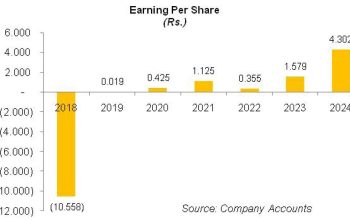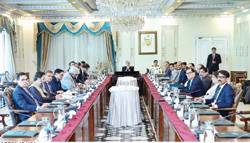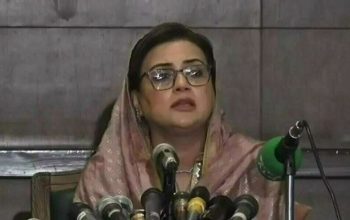The upcoming elections in both Khyber-Pakhtunkhwa and Punjab have apparently hit a snag as their governors on Wednesday did not give the dates to the Election Commission of Pakistan (ECP) for holding the polls in the two provinces sought by the electoral watchdog from them.
In fact, they advised the ECP to take the country’s security situation – especially in the wake of the bombing inside a mosque in Peshawar that claimed over 100 lives a day earlier – into consideration before announcing the polls in the two provinces.
In a letter to Chief Election Commission (CEC) Sikander Sultan Raja, K-P Governor Haji Ghulam Ali wrote that the opinion of the law enforcement agencies should be taken before holding the elections.
He added that security agencies, as well as political parties, should be taken into confidence for this purpose.
The governor urged the electoral watchdog to have a dialogue with the law enforcement agencies because of the alarming situation in the province after the recent incidents of terrorism.
He added that the date for the polls should be announced after consultation with the law enforcement agencies and political parties.
A spokesperson for the ECP said the K-P governor had not yet given the date for the elections to be held in the province.
Similarly, Punjab Governor Balighur Rehman also advised the ECP against holding the elections in his province in the near future citing the law and order situation as well as the financial woes in the country.
He too did not give a date for conducting elections in the province.
He informed the ECP that it was necessary to take all the stakeholders on board before announcing the date for the provincial elections.
He maintained that Article 105 (3) of the Constitution could not be applied in prevailing circumstances.
Article 105 (3) states: “Where the governor dissolves the provincial assembly, notwithstanding anything contained in clause (1), he shall, (a) appoint a date, not later than ninety days from the date of dissolution, for the holding of a general election to the assembly; and (b) appoint a caretaker cabinet.”
Earlier, the ECP had sent letters to the governors of K-P and Punjab with the proposed dates for the elections in the two provinces.
The electoral watchdog had proposed April 15 to 17 for the elections in K-P and April 9 to 13 for the polls in Punjab.
It had asked the respective governors to select a date within the given timelines.
Also, Federal Minister for Information Technology & Telecommunication Syed Aminul Haque on Wednesday said that the digital census would continue till March, after which the election commission would need four months for de-limitations, that made it clear that general elections in the country were not possible before October 2023.
He stated this while addressing the Internet Governance and Internet Resources Share for Pakistan event organised by Number Resource Society (NRS), a news release said.
Meanwhile, PTI leader Farrukh Habib castigated the coalition government for high inflation rate and the recent hike in the prices of petroleum products.
Addressing a news conference in Lahore, the PTI leader observed that the inflation rate that was 12 per cent during the PTI government had increased to 27 per cent under the incumbent government.
“Despite all the genius and experienced people present in the government, inflation has broken the back of the people. Cost of living has skyrocketed during the tenure of the incumbent government,” he said.
“By hiking the prices of petrol and diesel by Rs35 each, the government has committed cruelty with the people who were already hard pressed by the unprecedented inflation.”
Habib maintained that the incumbent regime had “snatched food” from the people as the prices of edible items had increased manifold.
“Earlier, flour, which was Rs60 per kg is now being sold at Rs160 per kg. Pulses, milk and other essential food items have gone out of reach of the common man,” he said.
The PTI leader noted that Pakistan saw a drop of 11 per cent in its remittance while the foreign investment declined by 180 per cent.
He pointed out that the government would again increase the electricity tariff on the demand of the International Monetary Fund.
He said, “law does not exist in the country as anyone who utters a word is charged with sedition”.
Read the full story at the express tribune website.


